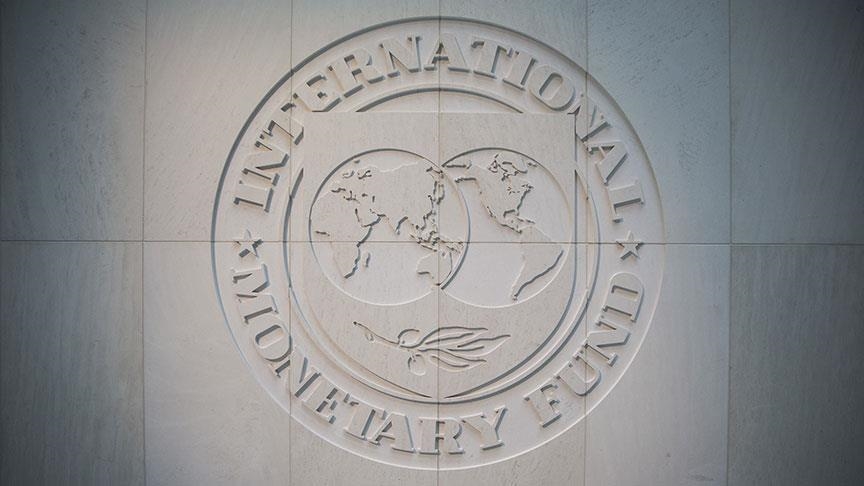Argentine president criticizes IMF loan at UN General Assembly
Alberto Fernandez also calls for new global financial architecture, reaffirms his country’s commitment to tackling climate change

LONDON
Argentine President Alberto Fernandez criticized the “toxic and irresponsible loan” that the International Monetary Fund (IMF) provided to his predecessor’s government in a pre-recorded speech to the 76th UN General Assembly on Tuesday.
During the speech, which lasted around 20 minutes, Fernandez also called for “a reconfiguration of the global financial architecture,” touched on the issue of the sovereignty of the Malvinas/Falkland islands and pledged to tackle climate change.
The president noted that "Latin America and the Caribbean allocate 57% of their exports to the payment of external debt services.”
He argued that Argentina "has been subjected to a toxic and irresponsible indebtedness" with the IMF, which approved a $57 billion loan to the government of former President Mauricio Macri.
Fernandez described the 2018 IMF loan to Argentina as the equivalent of "all that the agency disbursed in the year of the pandemic to 85 countries in the world.”
He pointed to the lack of a multilateral framework for debt restructuring, which continues to be a "void in international financial governance.”
He noted, however, that “change, although difficult, is not impossible. We celebrate the expansion and distribution of the Special Drawing Rights of the International Monetary Fund, an initiative which has opened the door to hope. What a year ago was unthinkable, today is a reality”
Fernandez proposed that “risk rating” form a part of the "international financial architecture reform agenda,” describing it as “key to rescue the principles of debt sustainability that have been discussed at the United Nations.”
He also called for "a pact” to extend repayment terms with lower interest rates "to countries under circumstances of financial, health and ecological stress.”
"We must promote sustainable financing systems that promote payment mechanisms for eco-systemic services and the concept of environmental debt. The debt-for-climate swap is another virtuous step that we must take,” he added.
Climate Change
Fernandez also pledged his country’s “full commitment” to the Paris Agreement, highlighting the need to transition to renewable energy and adapt clean technologies, prevent illegal deforestation and restore ecosystems.
"All these commitments are one more step that our country is taking towards a consistent trajectory with the [global temperature] goal of 1.5 °C and with carbon neutrality by 2050,” he said.
He added that this would not be possible without tackling “global inequality” and "the reconfiguration of the international financial architecture.”
He noted that the $100 billion to aid developing nations tackling climate change had not materialized.
“Climate justice will be a chimera without global financial justice that contributes to social justice,” said Fernandez, as he called for "environmental social justice."
Human Rights
The president also touched on human rights for different sectors of society, noting the coronavirus pandemic has led to intensified violence against women, brought further stigmatization of migrants, LGBTQ people, the elderly and people with disabilities and has generated great impacts on indigenous peoples.
“We are challenged to build more just, inclusive and egalitarian societies," he added.
Vaccines
Fernandez also called for the reconstruction of the post-pandemic world "under the rule of solidarity and equity" and said “vaccines against COVID-19 must be global public goods. Argentina welcomes the patent proposal. From our country, we are involved in the production of two vaccines.”
He also called for international collaboration to resolve the circumstances around the 1994 suicide bombing of a Jewish community center in the capital Buenos Aires which killed 85 people and wounded hundreds in what is Argentina’s deadliest terrorist attack to date.
Falklands/Malvinas
Fernandez reaffirmed Argentina's “legitimate and imprescriptible” sovereignty and rights over the Malvinas (Falkland) Islands and South Georgia and the South Sandwich Islands.
"These territories have been illegally occupied by the United Kingdom for more than 188 years," he said.
“There is no reason other than the intention of the United Kingdom to maintain the manifest and illegitimate colonial situation so that the bilateral dialogue is not resumed right now on the Malvinas issue,” he added.
Anadolu Agency website contains only a portion of the news stories offered to subscribers in the AA News Broadcasting System (HAS), and in summarized form. Please contact us for subscription options.







